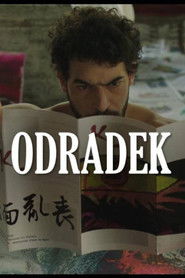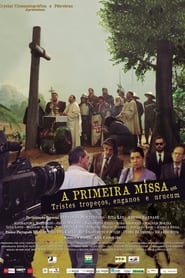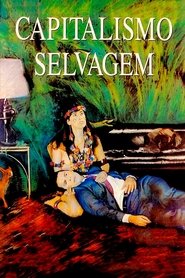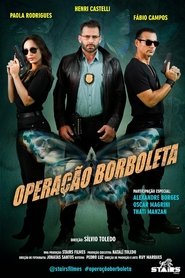detail profile oscar magrini
Peran Yang Di Mainkan Oscar Magrini
 In a huge and empty neoclassical...
In a huge and empty neoclassical...Odradek 2024
In a huge and empty neoclassical mansion surrounded by an indefinite war, the daughter of a bourgeois family returns from Europe bringing a Kafkaesque toy. Because of this object without specific usefulness, everyone in the family begins to discuss life and discover their own weaknesses and follies. This process of self-discovery will lead them to meet phobias, hypocrisies and prejudices, but also their most intimate truth.
 It is a documentary about the...
It is a documentary about the...O Corpo é Nosso! 2019
It is a documentary about the trajectory of the liberation of the Brazilian woman's body and exposes the differences of this trajectory to white and black women. The film presents interviews, archive images that illustrate some of the factors that contributed to this liberation in Brazil - such as music, dance, fashion and the contraceptive pill - and proposes a discussion about feminism through the deconstruction of the masculine. The film incorporates fictional scenes where men do not realize their macho and racist behavior and full of class prejudices, rooted and accepted by society.
 On set in the middle of...
On set in the middle of...A Primeira Missa ou Tristes Tropeços, Enganos e Urucum 2014
On set, in the middle of the Atlantic Forest, a stressed film director begins another day of filming, reproducing the celebration of the first mass in Brazil. Suddenly three strange agents emerge from the forest and abruptly interrupt the scene. Authoritarians, they confiscate the filmed negatives. The paranoid director grumbles: "Are they from the government?". The execution of the film is compromised. Will the director in trouble be able to complete his film?
 In the 1980s a journalist sets...
In the 1980s a journalist sets...What Ever Happened to Dulce Veiga? 2008
In the 1980s, a journalist sets out to find the whereabouts of a famous singer/actress who disappeared decades earlier. During his search, he goes across several states in what ultimately becomes not only a search for a missing person but a journey of self-discovery.
 A clumsy angel is sent away...
A clumsy angel is sent away...Didi, o Cupido Trapalhão 2003
A clumsy angel is sent away from heaven by God Himself. He may only return after he becomes a good Cupid. But the first couple he tries to connect is a real challenge: the man is poor, and the girl comes from a rich family. And their names are Romeu and Julieta.
 When a doctor decides to carry...
When a doctor decides to carry...Carandiru 2003
When a doctor decides to carry out an AIDS prevention program inside Latin America’s largest prison: the Casa de Detenção de São Paulo - Carandiru, he meets the future victims of one of the darkest days in Brazilian History when the State of São Paulo’s Military Police, with the excuse for law enforcement, shot to death 111 people. Based on real facts and on the book written by Dráuzio Varella.
 In the 1950s while radio is...
In the 1950s while radio is...A Hora Mágica 1998
In the 1950s, while radio is slowly being surpassed by television as the leading broadcast medium, Tito Balcárcel, a voice actor, becomes romantically involved with Lúcia, a fan of his who drags him into a mysterious crime plot.
 Elisa is a journalist who becomes...
Elisa is a journalist who becomes...Savage Capitalism 1994
Elisa is a journalist who becomes romantically involved with Hugo, a director of the company Jota Mineração, when she receives an order to write a story about the company. However, the relationship between the two begins to destabilize when the company that Hugo runs begins to extract gold from indigenous lands.
 Daniel is a taxi driver whos...
Daniel is a taxi driver whos...Scent of Gardenias 1992
Daniel is a taxi driver who’s married to Adalgisa. When she starts acting in low-budget movies, he forbids her from seeing their son, Joaquim. For more than a decade, Daniel nurtures a feeling of revenge for his ex-wife, which gains strength when their now adult son finds his mother in full professional decay.


 A couple of tough girls from...
A couple of tough girls from... After a notorious crook pressures four...
After a notorious crook pressures four... Valdomiro gets involved in yet another...
Valdomiro gets involved in yet another... Angel works in a wedding dress...
Angel works in a wedding dress... A musical about a woman who...
A musical about a woman who...